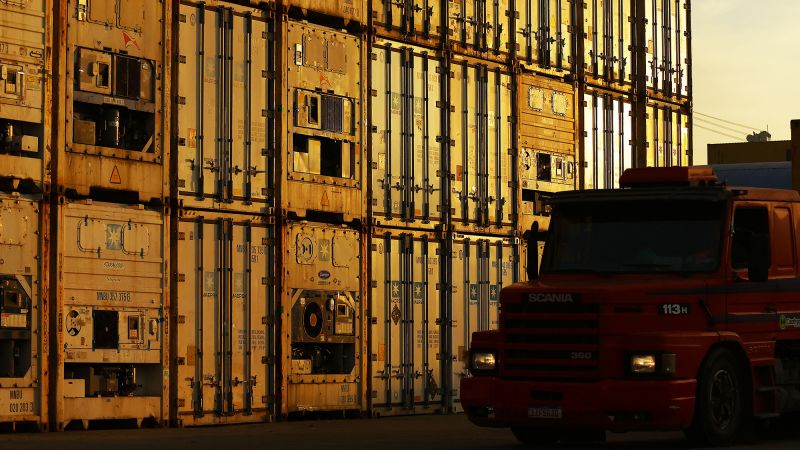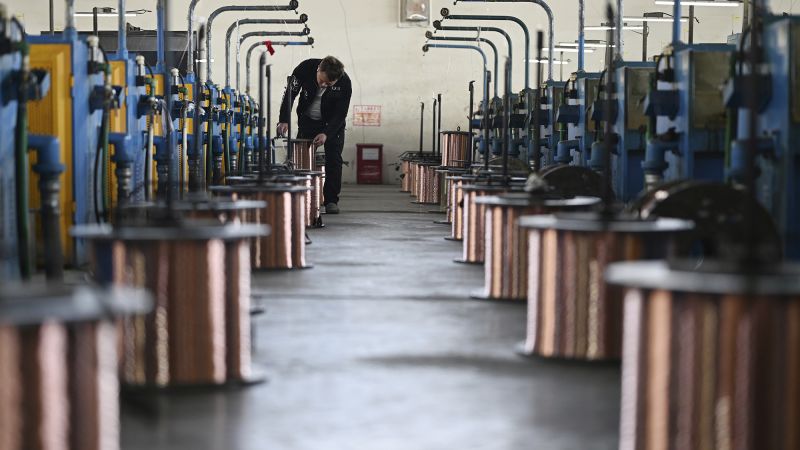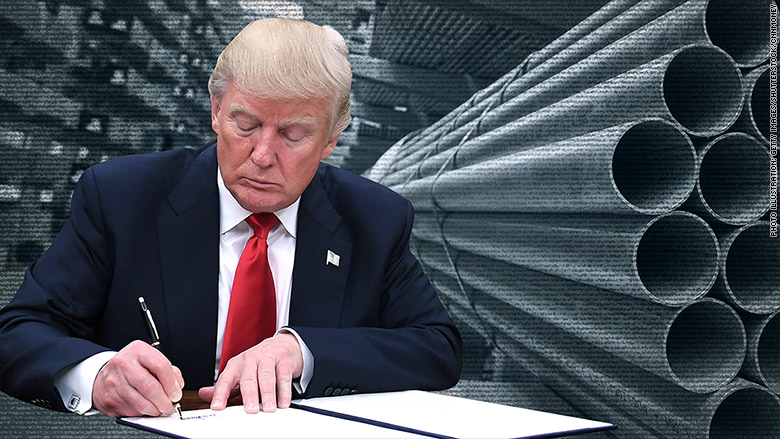US-Brazil Trade Relations at Risk Due to Bolsonaro 'Witch Hunt' Trial

Introduction
On Wednesday, President Donald Trump sent out a series of letters to global trading partners, warning them of possible tariffs as high as 50% on their exports to the United States. Among these trading partners is Brazil, which could face these steep tariffs if it does not put an end to the Bolsonaro 'witch hunt' trial. This threat has caused widespread concern and speculation about the future of trade relations between the two countries.
Current Situation
The Bolsonaro 'witch hunt' trial is a highly controversial case in Brazil, which has caused tensions between the country's government and the judiciary. The trial involves allegations of corruption against top government officials, including President Bolsonaro himself. With Trump's warning of potential tariffs, it is evident that the US is closely monitoring the situation and may take action to protect its trade interests. This could have far-reaching consequences for both countries, as Brazil is one
About the People Mentioned
Donald Trump
Donald John Trump, born June 14, 1946, in Queens, New York, is an American businessman, media personality, and politician. He graduated from the University of Pennsylvania’s Wharton School in 1968 with a degree in economics. In 1971, he took over his family’s real estate business, renaming it the Trump Organization, through which he expanded into building and managing skyscrapers, hotels, casinos, and golf courses. Trump gained widespread fame as the host of the reality TV show *The Apprentice* from 2004 to 2015, which helped establish his public persona as a successful entrepreneur. Trump entered politics as a Republican and was elected the 45th president of the United States, serving from 2017 to 2021. His presidency was marked by significant policy actions including tax cuts, deregulation, the appointment of three Supreme Court justices, renegotiation of trade agreements (notably replacing NAFTA with the USMCA), and a focus on immigration control including border wall expansion. He withdrew the U.S. from international agreements such as the Paris Climate Accord and the Iran nuclear deal, and engaged in a trade war with China. His administration’s response to the COVID-19 pandemic was criticized for downplaying the virus’s severity. Trump was impeached twice by the House of Representatives—first in 2019 for abuse of power and obstruction, and again in 2021 for incitement of insurrection—but was acquitted by the Senate both times. After losing the 2020 election to Joe Biden, Trump challenged the results, culminating in the January 6, 2021, Capitol riot. He remains a central figure in American politics, having won the 2024 presidential election and returned as the 47th president in 2025, continuing to promote policies aimed at economic growth, border security, and military strength[1][2][3][4].
Jair Bolsonaro
Jair Messias Bolsonaro, born on March 21, 1955, in Glicério, São Paulo, Brazil, is a Brazilian politician and former military officer who served as the 38th president of Brazil from 2019 to 2023. He began his career in the Brazilian Army in 1973 and graduated from the Military Academy of Agulhas Negras in 1977. After leaving the military, Bolsonaro entered politics, serving as a member of the Chamber of Deputies representing Rio de Janeiro from 1991 until his presidential election in 2018[1][2][6]. Bolsonaro is known for his right-wing nationalist and populist positions, with strong support for conservative social policies and admiration for Brazil’s former military dictatorship (1964–1985). His presidency marked a shift from over a decade of leftist leadership, emphasizing pro-market economic policies, agricultural development, and deregulation, often at the expense of environmental protections, particularly in the Amazon rainforest. His handling of the COVID-19 pandemic was widely criticized for downplaying the virus’s severity[2][3]. During the 2018 presidential campaign, Bolsonaro survived a stabbing attack that required emergency surgery but continued his campaign successfully, winning the runoff election against Fernando Haddad. He narrowly lost re-election in 2022, obtaining about 49% of the vote[3][6]. Following his 2022 election defeat, Bolsonaro was implicated in efforts to undermine Brazil’s democratic institutions. In September 2025, the Supreme Federal Court convicted him for planning a military coup attempt, sentencing him to over 27 years in prison[1][6]. Despite controversies and legal troubles, Bolsonaro remains a significant figure in Brazilian politics with a dedicated conservative base. His presidency and post-presidential events reflect ongoing political polarization in Brazil[1][2][3][6].
About the Organizations Mentioned
Brazilian Government
The **Brazilian Government** is the federal authority governing the Federative Republic of Brazil, a large South American country composed of 26 states and a federal district. It operates as a federal presidential constitutional republic with three independent branches: the executive, legislative, and judicial. The executive branch is led by the President, who serves as both the head of state and government, supported by a cabinet of ministers. Legislative power lies with the bicameral National Congress consisting of the Federal Senate and the Chamber of Deputies. The judiciary includes the Supreme Federal Court and other federal courts. The seat of government is Brasília[1][9]. Historically, Brazil’s federal government has evolved to balance powers between the national and subnational governments, guided by the 1988 Federal Constitution, which is the supreme legal framework. It emphasizes representative democracy and federalism. In recent years, the government has pursued ambitious reforms and programs aimed at social justice, economic reindustrialization, and environmental sustainability, including a goal for zero illegal deforestation by 2030 and an Ecological Transformation Plan to foster green jobs and reduce environmental impact[3]. Key achievements include Brazil’s leadership in open government initiatives coordinated by the Comptroller-General of the Union (CGU), promoting transparency and anti-corruption through multi-stakeholder collaboration with civil society. The government launched the *Brasil Soberano* Plan in 2025 to protect exporters and workers from U.S. tariff increases by supporting credit, tax relief, and diplomatic efforts across sectors like technology, agribusiness, and manufacturing[2][4]. Currently, Brazil maintains a complex political landscape with multiple parties ranging from left-wing to right-wing ideologies, with the Brazil of Hope Federation holding a parliamentary majority. Challenges remain in social equity, police reform, and political violence. Yet, the government continues fiscal management with transparency, fostering investment climate improvements and technological innovation as part of its economic agenda[5][6][7]. Notably, Brazil’s governmen
United States
The **United States** is a federal republic and a global superpower, playing a leading role in economics, military strength, technology, and governance. It is a nation of approximately 348 million people as of 2025, characterized by its diverse population and dynamic economy[8][6]. Founded in 1776 following independence from British rule, the U.S. rapidly evolved into a major world power, especially after World War II, when its technological and economic investments solidified its global dominance[4]. Today, it remains the world’s preeminent military power, with 76% of Americans recognizing this status, while about half view it as the leading economic power globally, though China is seen as a rising competitor[2][3]. The U.S. government operates through a complex system that manages federal finances, taxation, social welfare programs, and trade policies. Recent legislative changes, such as the 2017 Tax Cuts and Jobs Act and the 2025 One Big Beautiful Bill Act, have shaped the tax landscape to influence economic growth, labor markets, and federal revenue[1]. Despite challenges like rising federal deficits projected to reach 6.9% of GDP by 2027, consumer spending remains resilient, and business investment is expected to grow steadily in 2025[5]. In governance, the U.S. is rated "Free" with a score of 84/100 by Freedom House, though concerns about democratic erosion and partisan conflicts persist[6]. Public trust and satisfaction with government services fluctuate, reflecting ongoing debates about policy effectiveness and institutional competence[7]. Technologically, the U.S. maintains a critical edge, underpinning its economic and geopolitical power. Experts warn, however, that technological dominance is not guaranteed indefinitely, emphasizing the need for adaptive policies and international cooperation to sustain leadership in innovation and global affairs[4]. Overall, the United States remains a pivotal force in global business, technology, and politics, balancing historic strengths with contemporary challenges in











